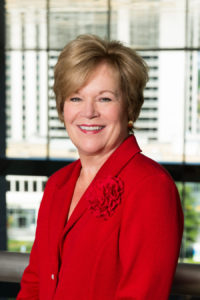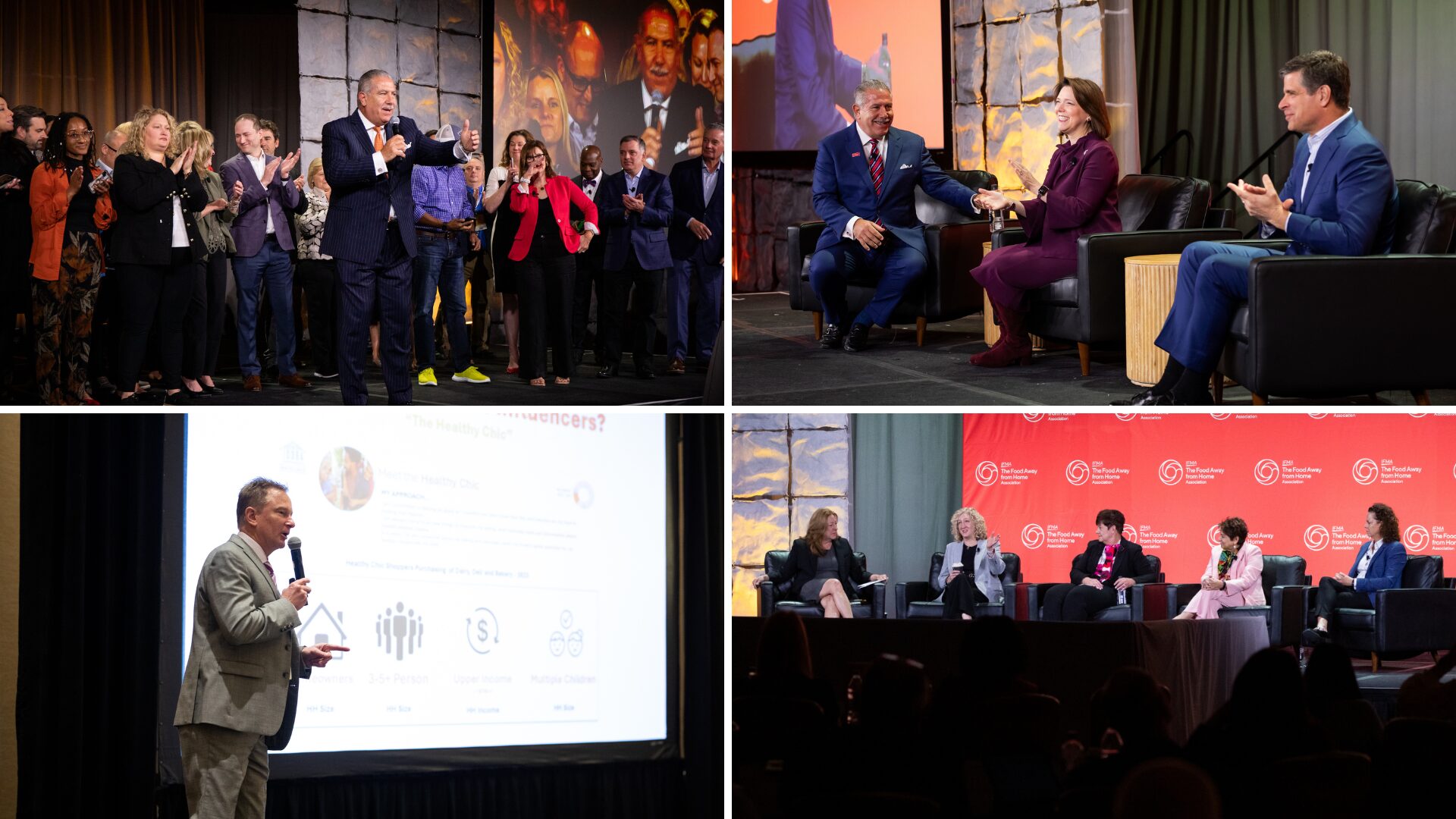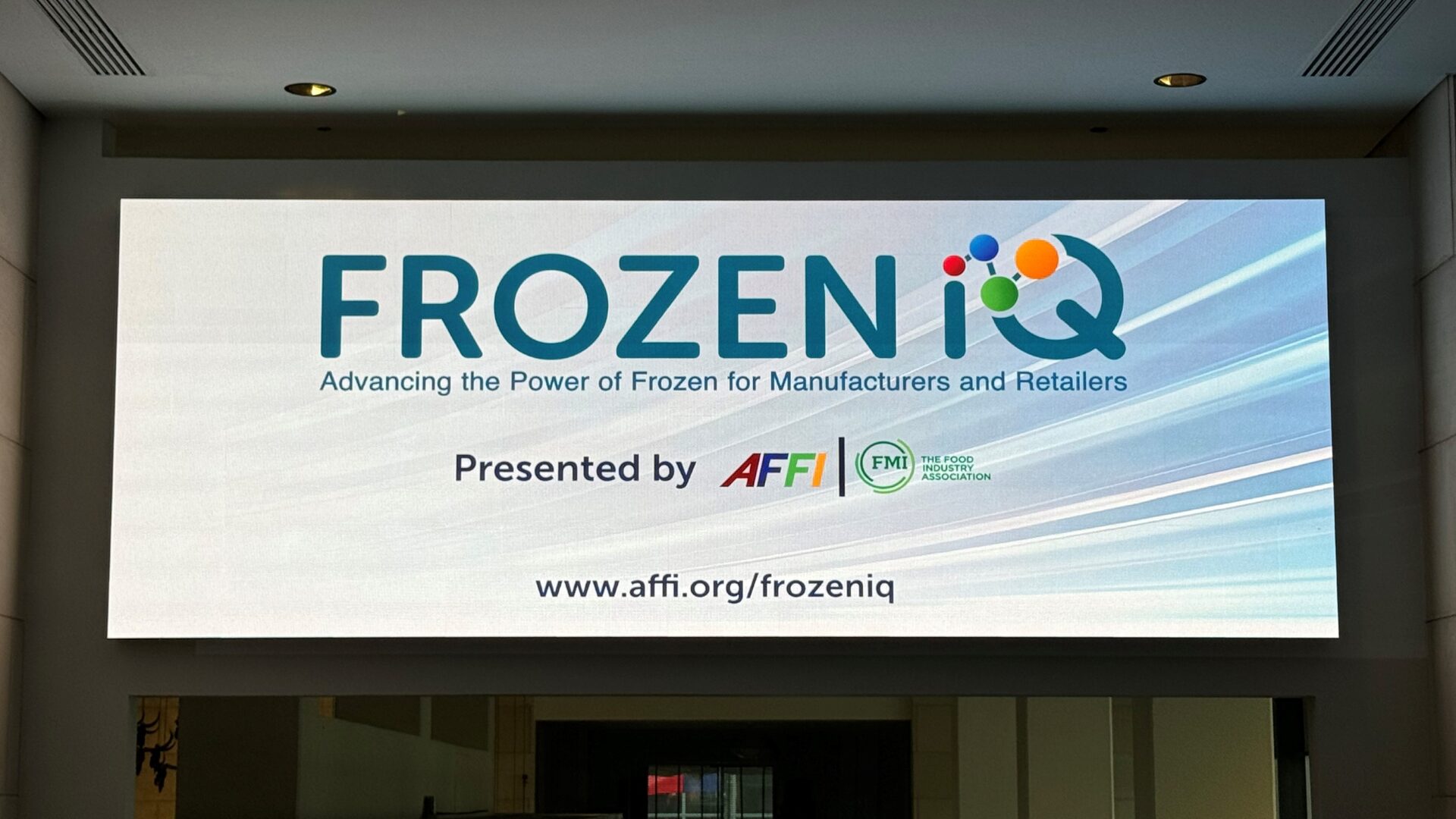
Leslie Sarasin
In honor of Women’s History Month, The Food Institute Report is highlighting influential female executives in the food industry for each of its three March editions and getting their thoughts on the industry. In this first installment, we spotlight Leslie Sarasin, president and CEO of FMI: The Food Industry Association. Sarasin has spent her 30-plus career focused on the food and consumer products segment, which included serving as president and CEO of American Frozen Food Institute. She joined FMI in Oct. 2008 where she currently leads a team of about 90 professionals to work on behalf of the entire industry to advance a safer, healthier, and more efficient food supply.
Q: Can you talk a bit about the strategy behind your organization’s recent name change?
A: It’s no secret there has been a tremendous amount of change among the businesses FMI represents, so we’ve changed from Food Marketing Institute to FMI: the Food Industry Association. As we went through this process, we interviewed a number of our members, other stakeholders, as well as non-members to better understand how we are perceived and what value we provide in the broader industry as an association. Putting all of that together, it just made sense to simplify to FMI and migrate to a more descriptive tagline, which is the Food Industry Association.
Q: From your perspective, what are some important issues the food industry is currently experiencing?
A: I think certainly for the food retail industry, which has a net 1% to 2% annual profit margin, experimentation is important but sometimes it can be a make or break proposition for them as they try to adapt. The companies that are most focused on the consumer are the ones most successful.
A number of our companies have pharmacies in their stores, and one of the things we’ve been working on is the pursuit of meaningful reform of what we call DIR fees, direct and indirect remuneration fees. These fees are charged back to our retailers, retroactively, after the sale has been made to the customer and the customer has gone away. Our member companies now get these fees charged back to them, and frankly, our margins in the stores just can’t absorb these costs. As we think about those kinds of issues, we need to really work hard to help the public and decision-makers understand what the real-life effectiveness is. According to the federal government, for example, DIR fees charged to pharmacies have grown more than 45,000%, just in the last decade.
Q: What should our readers know about in terms of consumer shopping trends?
A: Online food and beverage sales is going to equate to about $143 billion by 2025. It sounds like a long time away, but it’s five years. If that happens, that’s 18% of the overall expected $800 billion combined in online and in-store spending. The online growth is going to continue to some degree. How long or how far? Who knows. But when you ask the question, where will people be shopping in the future, I think it’s frankly the same places they’re shopping today, which is everywhere. Shoppers are going to the stores they want to shop at the most. They buy from a wide variety of retail channels, and it’s accelerating more all the time. The other thing we need to be cognizant of is the way we live our lives these days and how much it’s changed. For example, it’s 3:12 p.m. right now. If you ask me what I’m serving for dinner tonight, I couldn’t tell you. And most people you talk to at 3:12 p.m. on a Thursday afternoon would say the same. We’re all living in this world where we want to have good opportunities for buying what we want, when we want it, how we want it, and where we want it. And we want it right now! I think that’s going to continue.
Q: You’ve been involved with the International Women’s Forum of Washington, DC, for several years. What drew you to the organization?
A: It’s a collection of women and their diverse achievements, and one of the things I love about it is it gives me the opportunity to come into contact with people I wouldn’t necessarily come into contact with in Washington. It brings together a group of accomplished women for the common purpose of promoting leadership, for sharing ideas and experiences. I went to a women’s college and I think sometimes there are ideas and thought processes you can go through in an all-female environment that don’t necessarily happen in other places, so I am constantly amazed at the intellect and the level of contribution the women in the Women’s Forum make to society and to the businesses they run and to the industries they serve.
It’s a good way for me to get outside of the food and consumer products world to see what’s going on in other parts of the business world.
Q: What would you like to be most known for in your career?
A: I would like to be known as a person who provided early-21st century leadership and worked collaboratively with others who share our values to help prepare this industry—during a time of change—as it adapts and evolves, and executes new thinking and new actions to become a successful and highly regarded mid-21st century industry. It’s hard to think about what the mid-21st century will be like, but it’s really not that far away. My hope is that’s the way my leadership in this industry, and certainly at FMI, will be remembered.









